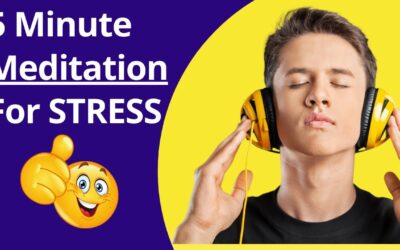
Have you ever wondered how to include self-care in your life? We often hear about self-care, but do you wonder how you are supposed to apply it? How are you supposed to know what self-care activities are best? And do you even really need self-care, or is it just woo-woo stuff that isn’t going to work?
There are a lot of different perspectives out there about self-care. When people think of it, they often think of going to the spa or meditating all day long, and some people think self-care isn’t for them because of their age or gender or for some other reason they deem it doesn’t apply to them.
But self-care is for everyone and means different things to different people.
What is self-care?
My definition of self-care is “anything you do to improve your health without the direct support of a healthcare provider.” Of course, healthcare providers play an essential role in our health journey, but sometimes we can become very dependent on them for our health needs while neglecting to do the things we can do on our own to help.
We can do things on our own to make it easier to work with our healthcare providers while getting the results we want for our health.
My journey with becoming a mental health speaker evolved from my own struggles with mental health. I’ve struggled with mental health challenges throughout my life. So I’ve had to learn tips, tools, strategies, and hacks to get me through the day and sometimes to get me through the hour.
I’m excited to share these self-care tips with you because they have helped me greatly. They have made my challenges much more manageable.
That is self-care. It’s the things in your control that you can do for your health.
Self-care activities aren’t meant to cure anxiety, depression, everyday stress, or other mental health challenges. Instead, they are simply meant to help make them more manageable.
A note about masculinity and self-care
As a man who has struggled with mental health challenges, I have learned to thrive and continue to cultivate a healthy sense of masculinity as I’ve addressed my mental health. I know that is a concern for many men, and it doesn’t get discussed enough.
In fact, for a while, many people thought the term “masculinity” was negative because it was associated with being toxic. But masculinity is just a trait; any trait can be toxic or healthy.
I want to encourage men to embrace that all men struggle with mental health challenges. Men struggle with emotions, insecurity, anxiety, PTSD, and many of the same mental health concerns as women. Men often think they don’t feel emotions, but what really happens is many men repress them, and they eventually expose themselves as anger.
For many years, I thought I battled anger management issues. In fact, anger is still something that I struggle with at times. But I learned through therapy and counseling that my anger is depression in disguise. I believe the same is true for many men with anger management challenges.
As young boys, we’re not usually taught how to deal with emotions. Instead, we’re told to “man up,” “pull yourself up by the bootstraps,” and “be tough.” And there are times in life when we all need to do that, but it’s essential to learn to work with your emotions. They are a great teacher and help us learn about ourselves on a deeper level.
Developing a self-care routine
The best way to benefit from self-care activities is to make them part of your regular routine. The occasional self-care day off of work might be nice, but if you want to experience lasting change in your mental health and emotional wellness, self-care can’t be something you only do on occasion.
Below are 11 self-care tips, strategies, and hacks that have helped me the most. I encourage you to choose at least one or two to try yourself.
Find the right therapist or counselor. If you are going to therapy or counseling, make sure you’re getting the most out of it. If you’re not going, I encourage you to find a therapist. Usually, it takes about two to three sessions to tell if you have found a good fit.
It’s important to do your research and get recommendations, but generally, after a few sessions, you’ll have a gut feeling about whether or not the person is the right fit.
If you’ve been working with a therapist or counselor for years but don’t think they are that good anymore, it’s often an indicator that they have done their job and you’ve grown. So it’s important to keep that in mind.
It’s also vital to be proactive between sessions. I learned this the hard way. I used to go to therapy and think, “Okay, I’m here. Why are you not helping me? We’ve had ten sessions, and nothing has changed.”
However, I eventually realized that I needed to be proactive between sessions. Doing so means blocking time to reflect, do homework, and think about what you’re discovering. Sometimes it’s painful stuff you have to think about, but that’s the work you need to do on yourself, and it’s an ongoing process.
Be honest about your spoons. Christine Miserandino is a blogger living with lupus, an autoimmune disease that brings fatigue, fever, joint pain, and a long list of other symptoms. She wrote an article titled “The Spoon Theory.” It described how she explained to her friend what it’s like to live with lupus.
They were sitting at a diner, and she handed her friend 12 spoons. They represented units of energy for the typical activities we all do. These include things like showering, taking out the trash, and getting dressed.
She took away a spoon for every task. The idea behind this was that quantifying your energy as spoons is really important for people with chronic illnesses, including depression. Unfortunately, some of us only get a handful of spoons each day.
For example, this morning I woke up, checked on my own spoons, and realized I had a good amount for the day. So it was a good day to do some filming for my YouTube channel. But I might have two spoons on certain days when I wake up. So that might mean if I make it out of bed and drink some water, that’s all I have for the day.
Taking this time to think about how many spoons you have each day may help you set more realistic plans for the day.
Get vitamin D and fresh air. Many people experience depression in the winter. This is a disorder known as Seasonal Affective Disorder. It occurs in the fall and winter because of the lack of natural light. So it can help to be intentional about getting sun or taking a vitamin D supplement.
Also, breathing in the fresh air can raise oxygen levels in your brain, boosting serotonin levels and altering your mood. It doesn’t take away depression, but it can improve your mood.
Join in and actively participate in a support group. Support groups are game changers. They can really make a difference in your mental health journey. The National Alliance on Mental Illness (NAMI), Mental Health America (MHA), and the Depression and Bipolar Support Alliance have different support groups you can join. Many of them are free.
There is also one that not many people know about. The 12 Steps in Alcoholics Anonymous (AA) has been a very successful program for people battling substance misuse or other addictions. There are many different 12-step programs now, not just for alcohol, but for narcotics at the Drug Rehab Center For Men, sex addiction, debt, and other areas of life. There is also one for mental health. It’s called Emotions Anonymous. It uses the 12 steps that started in AA and is free to join. You can find groups in your area or online.
Get in the habit of feeling your feelings. Feeling my feelings was a struggle for me for many years. The thought of this used to be so overwhelming. When you’re feeling a difficult emotion, you may think that you are that emotion. I’ve shared before about how when I used to get angry, I used to feel that I was angry. It would take over like the Incredible Hulk.
As an adult working with a good therapist, I learned the importance of sitting with the anger, feeling it, and not doing anything about it or feeling the need to make it go somewhere or put it on someone. Just feel it. This is very scary. The first time I did this, it lasted about 10 seconds, and I didn’t want to do it anymore. However, I eventually learned the benefits of feeling my feelings.
In David Hawkins’ book Letting Go, he shares the idea that if you sit with a difficult emotion, like sadness or anger, for 10-20 minutes, it will start to dissipate. I have tried to hack this.
On certain nights when my depression is heavy, I go into the living room and sit there with my depression. I put on a stopwatch to see if I can feel it fully for 20 minutes and allow it to be there. Every time I do that, some of that intense feeling has dissipated by the time I get to 20 minutes.
If you’ve been experiencing tough emotions, there is no need to repress them or try to run away from them. Learn to feel them. It will change your life.
Have a dance party with yourself. There is a book that has taken over the world of mental health called The Body Keeps the Score by Bessel van der Kolk, M.D. It talks about the fact that we store emotions in our bodies. For example, one way to look at stress and anxiety is stored energy. A great way to deal with it is to have a dance party with yourself. The movement of your body releases the stored energy.
Learn to meditate. Meditation is a technique for getting guidance to focus your attention, deepen your awareness, and achieve a clear mind while calming your emotions.
Often when I bring up meditation to people, they share that they struggle with concentrating or don’t feel like they’re doing it right. But it’s not about that. It’s about being patient with yourself and returning your focus to whatever you’re supposed to focus on. That’s it.
I like to do a style of meditation called transcendental meditation. There are YouTube videos and apps like Calm or Headspace, or if you prefer Christian meditation, there is an app called Abide. There is something for everyone out there, and I encourage you to try it.
Practice deep breathing. Deep breathing increases the supply of oxygen to your brain and stimulates the parasympathetic nervous system, which promotes a state of calmness. Any of the apps I talked about before with meditation include deep breathing and believe it or not, certain types of deep breathing are a form of meditation.
Ground yourself on earth. Grounding yourself is simply putting your bare feet on the ground outside. The earth’s surface carries a negative electrical charge due to the high number of free electrons created by constant lighting strikes, believe it or not. So when your body is in contact with the earth, this acts as an antioxidant and helps reduce inflammation.
So the earth can help calm your anxiety when it’s in overdrive, balance the nervous system, and reduce stress. I love doing this. This technique is also called earthing.
When I travel I carry a grounding mat with me that plugs into the grounding hole of the outlet. When I’m traveling, it’s winter, or I don’t want to be barefoot on the ground outside, I still get the same effect when I use this mat.
Turn your anger into power. Anger is an outward expression of power. I’ve learned that the key to dealing with anger for myself is turning it into power. We often feel our power is taken away when we’re angry at something. Maybe someone spoke down to you or cut you off while you were driving. So it’s important to learn to take your power back in a healthy way.
One of the ways I’ve learned to do that is to use the physical body. When I’m at the gym boxing, doing squats, or the leg press, I visualize taking my power back. If I’m doing a squat, when I’m going up and down, I imagine taking my power back and putting my foot down. One of the greatest things you can do for anger is to figure out how to turn it into power.
Cultivate wins. If you are competitive in nature, winning can help you feel good. This doesn’t mean you need to win at everything, but winning at certain things can help. Maybe it’s that project you’re working on, and moving forward on it helps you feel good. Perhaps you are progressing in your career; that’s an example of a win. Often, we can struggle more with our mental health when we feel like we’re losing. It’s a perception issue that can be different for every person.
So it’s helpful to cultivate wins. One of the wins I’ve had today is doing my morning meditation. I meditate twice a day, and knowing that I’ve gotten those two sessions in during the day is a huge win for me.
Do you want to know more about self-care?
If you’re interested in learning more about self-care and how to apply it to your life, I have several guides and workbooks available to help. You can also join my monthly newsletter to receive mental health and wellness tips.
Lastly, my team is working hard right now, creating an online self-care course to make it even easier to incorporate regular self-care activities into your life to protect your mental and emotional well-being. If you join the newsletter, I’ll let you know when the course is available.



